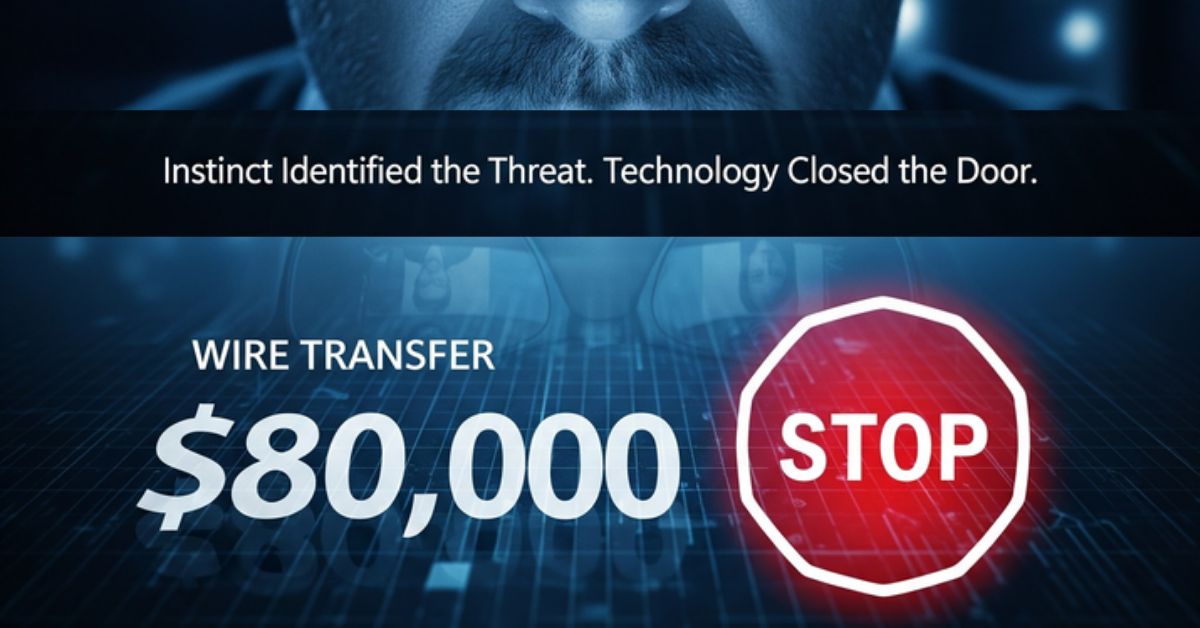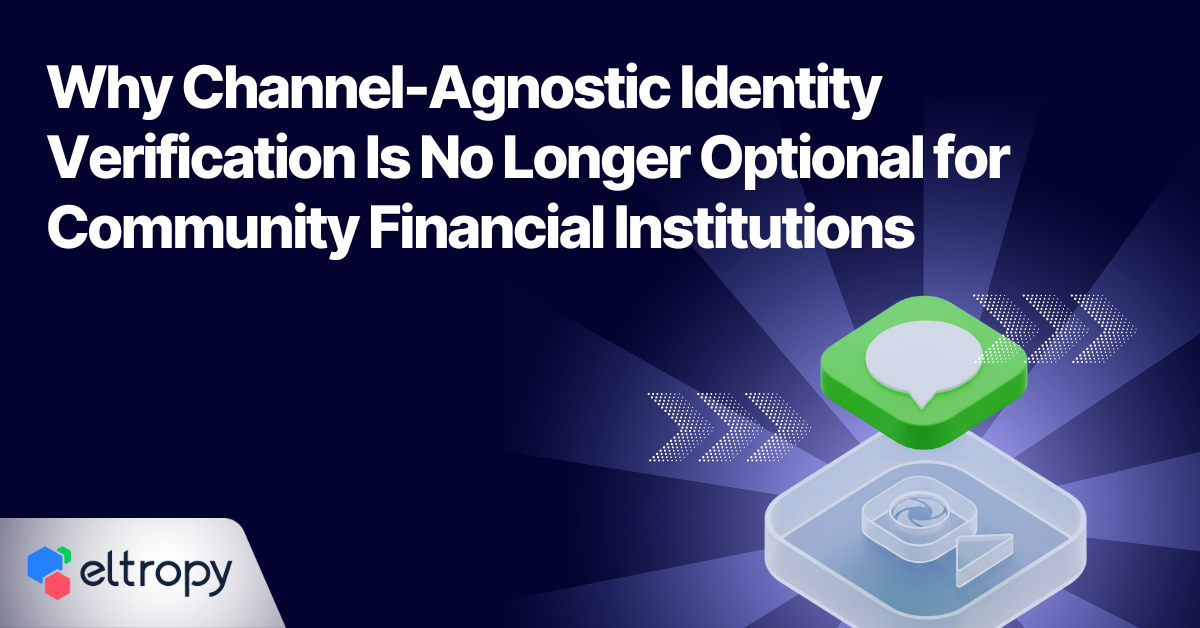Quick Overview
In October 2024, the Consumer Financial Protection Bureau (CFPB) finalized one of the most transformative rules in modern banking: Section 1033 of the Consumer Financial Protection Act that requires financial institutions to provide access to certain consumer data upon receiving a request from an authorized third party, securely, freely, and in a standardized format.
While the industry saw this coming, most institutions weren’t ready for the moment. According to Fitch’s U.S. Bank 2025 Outlook, 66% of community banks are concerned about meeting these new open banking requirements.
The blog unpacks what’s behind the pressure and how forward-thinking CFIs can rely on Eltropy to turn it into an opportunity.
What Section 1033 Means for Community Banks
At its core, Section 1033 is a paradigm shift for community banks. It mandates that any institution offering a financial product or service must, upon request, provide the consumer with their account, transaction, and usage data in a usable, electronic format. And, consumers must also be allowed to share that data with authorized third parties, without paying fees.
“a covered person (e.g., a credit union) shall make available to a consumer, upon request, information in the control or possession of the covered person concerning the consumer financial product or service that the consumer obtained from such covered person, including information relating to any transaction, series of transactions, or to the account including costs, charges and usage data. The information must be made available in an electronic form usable by consumers”.
The usable, electronic data sharing methods (such as standardized application programming interfaces or APIs) must be in place to allow third parties to securely access information (for deposit accounts, payment services, and credit cards) that the consumer wants to share. Just as important, they must not obstruct or discourage consumers or authorized third parties from requesting or receiving that data.
However, it demands a complete rethink of how banks manage, govern, and share data. Outdated cores, manual workflows, and limited IT bandwidth make compliance a tough hill to climb, especially when privacy and consent are on the line. And if you can’t support this? You risk losing customer trust, facing regulatory penalties, and falling behind fintechs and big banks that already offer seamless, secure data access.
The Smarter Way Forward: Eltropy Secure Data Export
Instead of sinking time and money into a massive overhaul, many community banks are turning to Eltropy’s Secure Data Export, a purpose-built solution that empowers you to meet the mandate securely, intelligently, and affordably.
Designed specifically for open banking and regulatory compliance, Eltropy empowers banks to manage, export, and govern sensitive data through a secure, API-driven, role-based system. With granular access controls, automated exports, and flexible integrations, you’re not just reacting to regulation, you’re leading the future of consumer-first banking.
It operates in three smart layers that are configurable and tailored to the needs of the institution using the Eltropy Unified Platform.
- Input: Documents and data are captured seamlessly across all digital interactions -Text, Chat, Voice, Video, Remote Deposits, ID Verification, eSignatures, and more. They’re context-rich, categorized digital records, organized by customer, interaction type, and session. Every document is encrypted at rest and in transit, forming a secure foundation for export.
- Processing: Admins control exactly what gets exported, how, when, and where, all from a centralized console. They can configure file types, naming conventions, folder structures, export schedules, and frequency down to the minute.
- Output: Data is exported to secure destinations like Amazon S3 or compliance platforms like Smarsh, organized by domain, timestamp, and interaction type for easy retrieval and audit readiness. With role-based access controls and API-driven delivery, only authorized users can view or share data, ensuring you stay compliant and in control.
Exports are typically scheduled during low-traffic windows (like late-night hours), but timing and frequency are fully configurable. This ensures minimal performance impact while aligning with your internal data refresh and audit cycles.
Key Capabilities That Set Eltropy Apart
- Automated Daily Exports
All the documents gathered during the interactions are automatically exported to the storage destination (such as AWS S3 or Smarsh) daily. These files are also systematically categorized by domain, date, and interaction type, eliminating the need for chaotic manual sorting. - Enterprise-Grade Security
Every export is protected by Role-Based Access Controls (RBAC), ensuring only authorized users can access specific files. Data is encrypted in transit and at rest using OAuth 2.0, expiring access tokens, and secure APIs. Each institution’s data is further isolated by domain, with structured export paths and comprehensive audit trails, offering a fully automated, monitored, and secure process without manual overhead. - Export Configurations
Institutions can choose between Standard Exports, which offer out-of-the-box folder and file structures, or go fully Custom, with granular control over export triggers, naming conventions, file transformations, and folder hierarchies, all tailored to your operational needs. This flexibility allows FIs to meet internal workflow, audit, and compliance needs with zero friction. - OAuth 2.0 + API-Driven Architecture
For integrations with third-party document systems like Smarsh, Eltropy uses a token-based OAuth 2.0 protocol to maintain secure, authenticated API sessions. There are no password-based vulnerabilities, and it balances security, scalability, and ease of integration - Supporting Consent and Future-Proof Access Control
One of the most pivotal aspects of the new rule is giving customers the ability to access, share, or revoke consent to their data. Customers can work with domain managers to initiate data transfers, and the Secure Export system makes it easier than ever to aggregate, package, and share the right files at the right time. - Multi-Tenant, Multi-Party
Eltropy’s architecture supports multi-tenant and multi-party access. So, if a customer shares their data with multiple banks for different loan applications or services, role-based access can be granted to all simultaneously. Roles and access rights are created per institution, ensuring that each party gets only what they’re authorized to see.
Turn the Mandate Into Momentum
The new open banking rule is a wake-up call for community banks to adopt secure, consumer-first data strategies that bring trust, transparency, and control to your institution’s data ecosystem.
While 66% of institutions feel unprepared, those who act now have a chance to turn regulatory pressure into a strategic advantage. With Eltropy Secure Data Export, you’re not patching together a solution; you’re stepping into the future with automated, API-powered, role-based exports built for security, scale, and speed, all without ripping out your core or overloading your IT teams.
Take this chance to automate the heavy lifting, meet data-sharing demands with confidence, and lead with future-ready governance.
Book a demo or connect with our team to see how Eltropy can help you lead the next chapter of secure, consumer-first banking.








